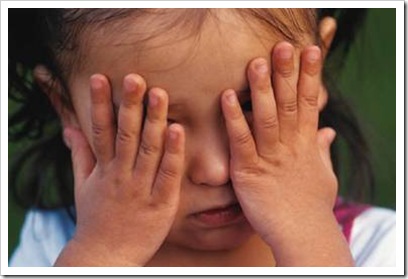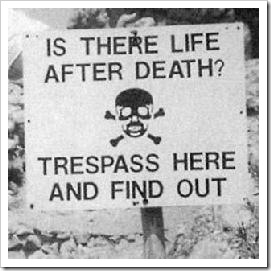Throughout my childhood, I often heard my parents talking about “making the right decisions”. I remember wondering many times, “What are the right decisions?”
- Are they right if I can predict the outcome properly (we are good fortune tellers)?
- Are they right if they make my mom and dad happy?
- Are they right if it stops someone putting pressure on me?
- Are they right if I can take more options into consideration?
- Are they right if the outcomes last longer?
As a kid, I asked myself these questions many times. I remember the strongest feeling I had from what my parents thought about the right decisions was that decisions were always a matter of life and death. Everything seemed to be a choice between life and death. I imagined God going over each choice I was making and sentencing me to life or death. If I made the right choice, I earned a bit more time in life, but if I chose wrongly, I was given the death sentence.
The greatest mistake you can make in life is to be continually fearing you will make one
– Elbert Hubbard
Just like my parents believed it is critical to make “the right choice”, many people are trapped by a fear of making mistakes. For them too, it is a question of life and death.
This fear is even greater for kids who grow up in such an environment. They fear making a mistake, as they perceive it, may end in disaster, in something they cannot change or fix, a death sentence for every small mistake they make. For some kids, it only takes a few unsuccessful choices until they give up on their ability to make the right choice. Most times, their unsuccessful choices could not have been avoided, at least not without psychic vision (fortune telling), simply because they lacked the understanding, the experience or the ability.
 This can mean that by their teens, they have completely given up on their quest for the “right decision”. Because they have no faith in the outcomes of their decisions, they give up on the idea and start thinking only about how they feel in the here and now – “The right decision is what makes me feel good right now”. It is for this reason that many teens seem self-centered, emotional or short sighted.
This can mean that by their teens, they have completely given up on their quest for the “right decision”. Because they have no faith in the outcomes of their decisions, they give up on the idea and start thinking only about how they feel in the here and now – “The right decision is what makes me feel good right now”. It is for this reason that many teens seem self-centered, emotional or short sighted.
It is not their lack of experience and knowledge that brings them to this situation but their frustration and fear of the death sentence that leads them there. Then, they try to color their life with small successes of feeling good in the hope of postponing the harsh sentence that awaits them. Finally, they grow up to be adults whose motto in life is “Never make mistakes!” This is unhealthy thinking and cannot be sustained for long without consequences.
In truth, we do not make mistakes. We only make choices that time, circumstances and other people’s choices can turn into right or wrong decisions. What is right for one person may be wrong for another, because nothing in life is absolute.
If you ask kids about the right choices, they will often go with what mom, dad or any other source of authority or pressure would have them choose, and when they do, they often become frustrated and confused. It is true that parents want the best for their kids, but their decisions are made based on 30 to 40 years of their own fears and may not necessarily be in tune with what their kids are experiencing.
There are no mistakes. The events we bring upon ourselves, no matter how unpleasant, are necessary in order to learn what we need to learn. Whatever steps we take, they are necessary to reach the places we have chosen to go
– Richard Bach
We can change the way our kids perceive mistakes if we teach them about the many choices they have in every aspect of their life. We can change behavioral problems if we chant this motto to our kids:
If you have made mistakes, there is always another chance for you. You may have a fresh start any moment you choose, for this thing we call ‘failure’ is not the falling down, but the staying down
– Mary Pickford
 Mistakes are merely choices we make that do not work to our advantage, or at least have not done so yet! Sometimes, we find that what seemed like the biggest mistake of our life is the very same thing that has brought us great learning.
Mistakes are merely choices we make that do not work to our advantage, or at least have not done so yet! Sometimes, we find that what seemed like the biggest mistake of our life is the very same thing that has brought us great learning.
In a world that is full of depression, sickness and a high (and rising) suicide rate for children, it is our responsibility, as the adults in their lives, to rise above our upbringing and define “right” and “wrong” in a way that will empower our children. Rather than implying that a “wrong decision” can result in something horrible, we need to help them identify the learning tied to their decisions and ensure that the only sentence they will encounter as a result of any choice they make is a sentence to life.
Happy parents = Happy kids,
Ronit











